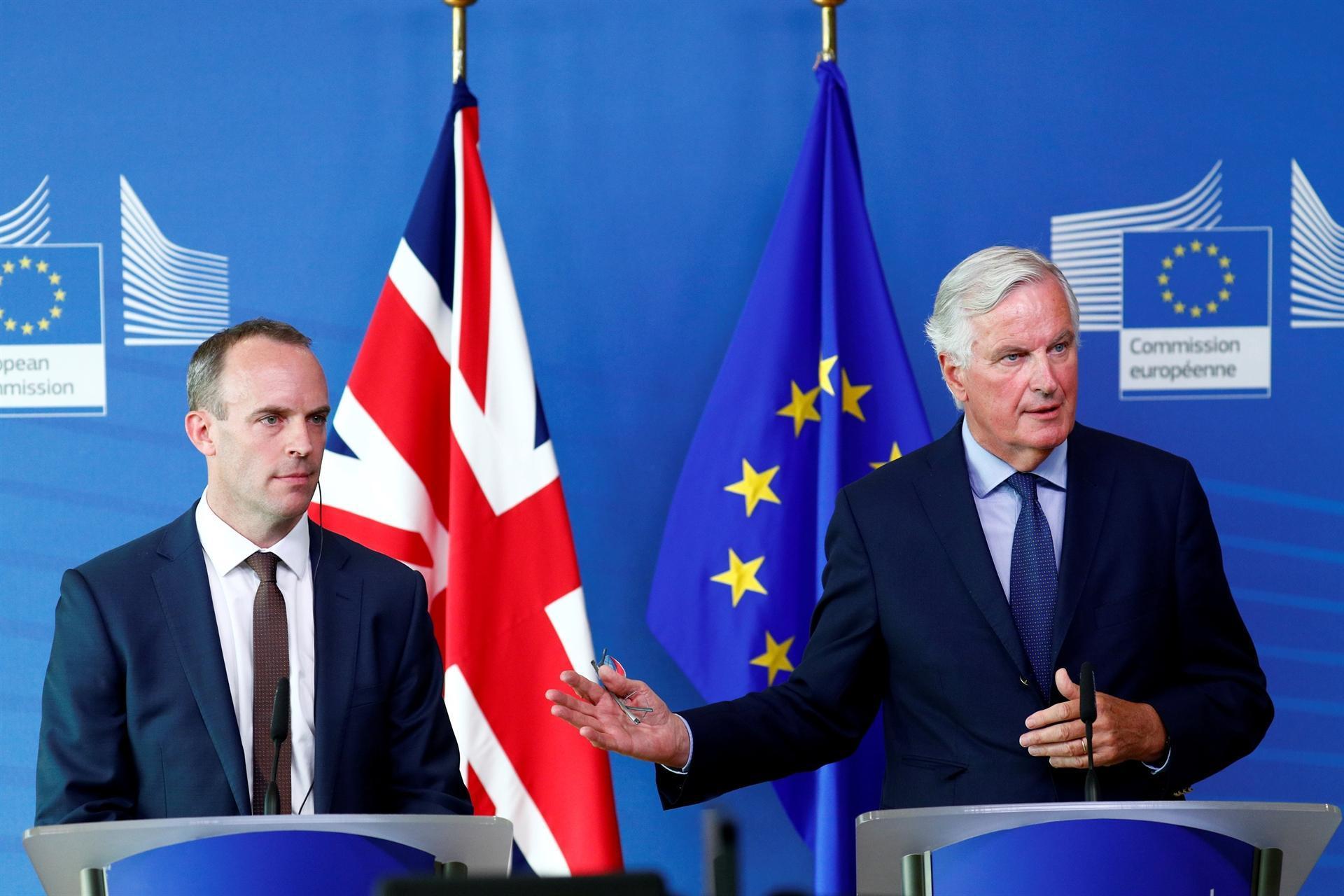UK outlines plans for ‘unlikely’ no-deal Brexit, warns against red tape
LONDON-Agence France-Presse

Britain on Aug. 23 outlined plans for managing the fallout in the “unlikely” scenario of Brexit talks collapsing, warning that businesses faced more customs red tape and consumers risked higher card payment charges.
Brexit Minister Dominic Raab also said Britain would adopt a series of EU rules in case of a no-deal to allow EU imports in and urged Brussels to do the same for British goods.
Raab said Britain would continue to recognize batch testing and EU certifications for medicine to avoid disruption but said the government would in any case stockpile medicines for an extra six weeks on top of the existing period of three months.
Raab insisted he was “still confident” of reaching an agreement with the European Union ahead of its planned departure on March 29, 2019 and said the failure of talks was “unlikely.”
“I remain confident a good deal is within our sights, and that remains our top, and overriding, priority,” Raab said at a speech in London as the government published the first of a series of “technical notices” to advise different sectors of the economy on how to handle negotiations collapsing.
“If the EU responds with the same level of ambition and pragmatism, we will strike a strong deal that benefits both sides. But we must be ready to consider the alternative,” he said.
“In some cases, it means taking unilateral action to maintain as much continuity as possible in the short term, in the event of no deal -- irrespective of whether the EU reciprocates.”
In the scenarios outlined by the government, Britons were warned of possible “increased costs and slower processing times” for euro transactions and told that “the cost of card payments between the U.K. and the EU will likely increase.”
Consumers may also have to pay more for online shopping and cross-border payments would also no longer be covered by a “surcharging ban” under EU rules, the technical notices said.
Surcharges, which were banned by the EU in January, cost Britons 166 million (185 million euros, $214 million) in 2015.
Another notice advised businesses that they could face additional customs costs and should consider buying appropriate software or hiring a customs broker.
The government, which has come under pressure from some Brexit hardliners to leave the EU without a negotiated agreement, said it would publish all its advice by the end of September.
Keir Starmer, the main opposition Labor Party’s Brexit spokesman, said the advice “provided no answers to how ministers intended to mitigate the serious consequences of leaving the EU without an agreement.”
David Lammy, a pro-EU Labour MP, said the papers showed the government was “playing Russian roulette with our economy.”
Frances O’Grady, head of the Trades Union Congress, said the reports confirmed that no-deal was not a credible option.
“It would be devastating for working people,” she said, adding: “The government cannot allow us to crash out.”
London and Brussels hope to strike a deal by October, to allow its ratification by the European and British parliaments before the U.K. leaves the bloc.
“Our overarching aim is to facilitate the smooth, continued, functioning of business, transport, infrastructure, research, aid programs and funding streams,” said Raab.
Raab said Britain and the EU had reached Brexit agreements on around 80 percent of issues, but the Irish border situation remained unresolved.
Britain voted to leave the EU in a June 2016 referendum.
















